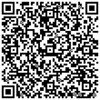There is a new challenge for instant messenger implementations: to find you.
Didn't it drive you nuts that you forgot to close your Yahoo Messenger session at home, came to the office, logged in (thus having disconnected the session at home) and later that day, after returning home, found an urgent message that came a split second after you left home?
Or, even better, found that the home session is set to automatically reconnect, thus buoncing out your work session and making the messenger useless, and that you don't have remote access to kill the open session on your home box?
I don't know if Google came to the idea of enabling multiple simultaneous sessions looking at Yahoo's mistakes, or that was a common sense decision. Hats off to them for that.
They have a different challenge, however.
Even though they do allow multiple sessions, the wrinkles on the mobile side are not quite ironed out yet. Rules of message propagation to multiple sessions are murky - messages in both directions seem to be delivered simultaneously to all web sessions, however, messages originated on mobile devices don't, moreover, replies to these messages don't register in other web sessions. All communications, however, get collated in the chat archive.
I can see why it is happening - without doubt, they have different content delivery servers for web and mobile clients, plus, security and privacy concerns on top of that. It would be insteresting how and when they sort it out. They better do it, though, as it is becoming a real pain in the neck as smartphones become a commodity.
Monday, January 19, 2009
Introducing: Multiple Connectivity Disorder
Labels:
google,
instant messaging,
mobile,
multiple connectivity disorder,
yahoo
Subscribe to:
Post Comments (Atom)

No comments:
Post a Comment